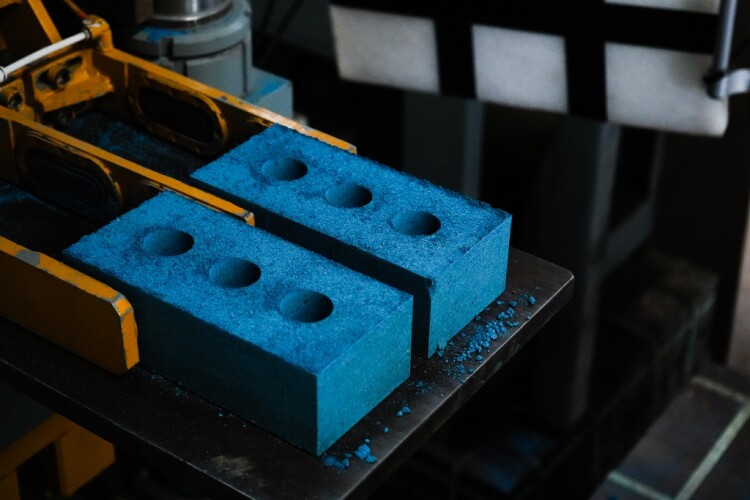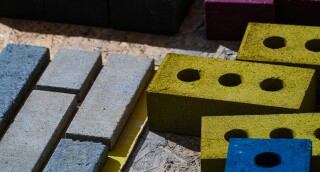
Scottish building materials company Kenoteq has secured British Board of Agrément (BBA) certification for K-Briq, which is made from construction and demolition waste.
Kenoteq says that its K-Briq can now be specified into construction projects ranging from facades and feature walls to brick plinths.
The K-Briq was conceived by Professor Gabriela Medero from Heriot-Watt University following more than a decade of research and development into creating innovative, low-carbon products from recycled construction waste. Medero is co-founder and technical director of Kenoteq, which launched in January 2020 as a spin-out from the university.
Kenoteq is now finally beginning full commercial production of the brick and is aiming to make two million K-Briqs a year at its first production facility in East Lothian, scaling up to four million as required. The company then plans to set up regional production both in the UK and internationally to provide low carbon building products from local waste.
The unfired K-BRIQ, made from nearly 100% recycled construction and demolition waste, has been certified with the same accreditation as standard clay bricks, yet has 95% less embodied carbon due to its production process.
With no standard testing regime for a non-traditional building material of this type, the K-BRIQ underwent what Kenoteq describes as “an unprecedented level of rigorous testing over several years” and received the maximum durability rating possible.
BBA certification follows certification for use in the United States through the DrJ Technical Evaluation Report (TER). European Union certification is under way.

Sam Chapman, co-founder and executive director of Kenoteq, said: “This certification marks the arrival of a truly transformative building material for the construction and interior design industries. Unlike approaches that simply treat the symptoms of construction’s environmental impact, the K-Briq addresses the root cause by directly tackling the waste crisis while delivering a product that performs exactly like traditional materials, including the clay brick.
“Securing BBA certification allows our product to be specified with confidence on commercial projects across the UK. We’ve already seen significant interest from leading property developers, architectural firms and public sector bodies committed to reducing the carbon footprint of their construction projects.


“The K-Briq is not just an environmentally superior alternative to traditional bricks, but a technically robust building material suitable for a wide range of construction applications. With our certification secured, we can now scale up production to meet market requirements while maintaining the exceptional quality and sustainability credentials that set us apart.
“The construction industry is under increasing pressure to reduce its environmental impact while maintaining high standards of quality and safety. The BBA certification of the K-Briq demonstrates that these goals are not mutually exclusive – we can build better while building greener.”
The K-Briq has achieved 100 tonnes of carbon savings in demonstration projects delivered to date, according to Kenoteq.
With a standard two-bedroom house in the UK typically requiring around 12,000 bricks, using a standard clay brick creates 5.46 tonnes of CO2e. Building with the K-Briq creates 0.2 tonnes of CO2e, the manufacturer says.
Got a story? Email news@theconstructionindex.co.uk
#Recycled #brick #secures #BBA #approval